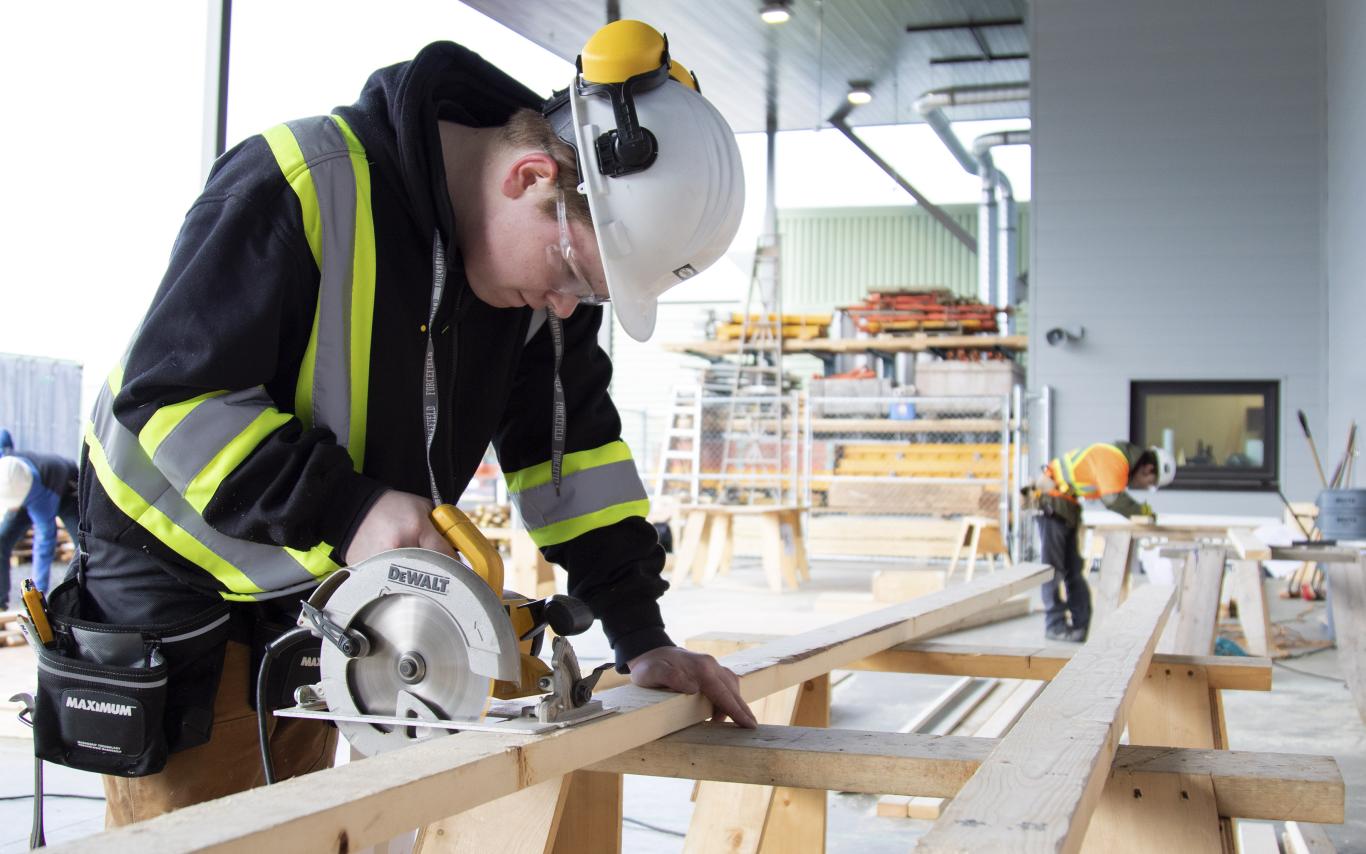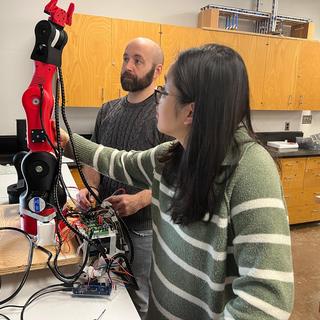There are plenty of reasons to consider a career in the trades, from hundreds of job openings to higher earnings.
Are you wondering if a career in the trades is right for you? Working with your hands, tools and big machines can pay off in a big way and starting your career in the trades can sometimes take less than a year of post-secondary training.
Nearly half of all the almost 71,000 job openings predicted for British Columbia over the next decade will be in the trades and technology fields. As technology advances, most of those careers in trades will require training by a certified institution such as Vancouver Island University.
Here are five good reasons why to consider a career in the trades.
There are hundreds of jobs to choose from.
When people think about trades careers, occupations like carpenter, heavy equipment operator, electrician and mechanical technician immediately come to mind. But in reality, there are more than 300 designated trades in Canada.
The demand and training programs differ across the country. In BC there are almost 100 different careers to choose from in a variety of fields, including aircraft technicians, landscapers, crane operators, mechanics, welders, hairstylists, bakers and much more. For some insight into the numerous, different types of jobs that are out there check out Trades Training BC’s A – Z listing of trades programs.
Start your training and earning while you’re in high school.
You can start building your future in the trades before you’re even out of high school and be earning more than minimum wage as an apprentice. Many post-secondary institutions create opportunities for youth to learn from skilled instructors and earn credits that count towards high school diplomas and Level 1 technical trades training. ITA’s Youth Train in Trades will help you find your opportunity to get a head start on your career.
Access grants to help you pay for school.
A lot of financial supports are specifically tailored for BC’s trades and apprenticeship programs. You could find help paying for your tuition or getting some funding during your apprentice training from the BC Access Grant for Labour Market Priorities, the Federal Government and WorkBC.
Earn higher wages.
The current minimum wage in BC is $13.85 an hour. It’s scheduled to increase to $15.20 an hour by June 1, 2021. Compare that to what a skilled tradesperson can earn, with starting wages averaging around $16 an hour for an entry-level position in carpentry, up to $57 an hour for a power system electrician, according to the BC Labour Market Outlook: 2018 Edition.
Tailor your career to fit your lifestyle.
With so many opportunities cropping up around the province for skilled tradespersons, it’s possible to work flexible hours that fit with your personal or family commitments. Other opportunities include travelling to many locations around BC if you wish and opting for a physically active job outdoors instead of sitting in an office.
Skilled tradespeople have an exciting journey ahead of them. They are the workers building our future buildings, maintaining the infrastructure we need to live comfortable lives, and many are leading the way finding sustainable energy solutions to mitigate the impact of climate change and global warming. To learn more, check out the Careers in trades guide by the Canadian Apprenticeship Forum and set yourself up for a successful career.




